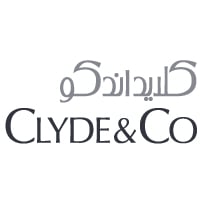

Chief Legal Officer, GRC Head and Board Secretary | The National Energy Services Company (Tarshid)



Yahya Saleh Alsulaim
Chief Legal Officer, GRC Head and Board Secretary | The National Energy Services Company (Tarshid)
Career Biography
Yahya Alsulaim is the Chief Legal Officer, GRC Head and Board Secretary at Tarshid – Saudi Arabia’s National Energy Services Company – where he has been a key contributor since the company’s inception. With over eight years of service at Tarshid, and broad legal expertise as a holder of LLB and LLM degrees from the UK, Alsulaim has been instrumental in establishing the company’s Legal, Governance, Risk, and Compliance (GRC) functions from the ground up.
Throughout his tenure, Alsulaim has led the development of critical legal infrastructure, including structured policies, compliance frameworks, board governance mechanisms, and contract templates. He currently leads a high-performing team of 15 professionals and serves as the legal steward for Tarshid’s major transactions — ranging from energy performance contracts and public-private partnerships to complex consortium agreements and financing arrangements. His efforts have supported the company’s strategic alignment with Saudi Arabia’s Vision 2030 and contributed to transactions worth billions of Saudi riyals.
Alsulaim views the legal function as both a guardian of governance and a strategic enabler of business growth. His insights are frequently sought in areas such as contract drafting, corporate structuring, IPO readiness, and governance reform.
Known for his principled leadership and strategic foresight, Alsulaim is also deeply committed to talent development. He fosters a collaborative, ownership-driven environment and actively mentors emerging legal and compliance professionals.
What are the most significant cases and/or transactions that you have been involved in over the past year?
Over the past year, I played a leading role in supporting the collaboration between the Saudi Ministry of Energy and its counterparts in Egypt, facilitating the exchange of expertise in energy efficiency and regulatory frameworks. I also contributed to guiding Tarshid’s entry into the commercial and industrial sector by developing tailored contracting models and legal templates — considered the first of their kind in Saudi Arabia. These initiatives not only broadened our strategic partnerships, but also strengthened Tarshid’s legal infrastructure to support new business lines in alignment with national energy transformation goals.
What innovations have you made to the way your legal team works in the past year?
I introduced several practical innovations to enhance the efficiency and consistency of our legal team’s operations. We developed tailored checklists for daily legal transactions, which significantly improved quality control and turnaround time. The impact was so effective that other departments have since adopted similar tools to streamline their workflows. To address recurring issues, we implemented an error tracking sheet that helps identify and minimise repeat errors in contract drafting and reviews. Most recently, we subscribed to “Qanuniyyah,” a local legal platform that provides up-to-date information on Saudi laws and access to judicial precedents. This has strengthened our legal research capabilities and supported our team’s ongoing adoption of legal tech solutions. Together, these innovations have improved performance, reduced risk, and enhanced internal collaboration.
Based on your experience, what is the key to collaborating successfully with business partners?
In my experience, the foundation of successful collaboration with business partners lies in establishing mutual trust and confidence that all stakeholders are working toward a shared objective. When each party is aligned on the end goal and committed to its achievement, collaboration becomes more purposeful, transparent, and efficient. Equally important is a clear understanding of the roles and responsibilities of each function. When boundaries are well-defined and respected, it minimises duplication, prevents misunderstandings, and enhances accountability across teams.
However, even with trust and clarity, collaboration can be undermined in environments where workplace politics or gossip are allowed to grow unchecked. This is where leadership plays a crucial role. Leaders must actively foster a culture of respect, professionalism, and results-driven focus, ensuring that personal agendas do not distract from organisational goals. By setting the tone from the top and maintaining a zero-tolerance stance on internal politics, leaders create a space where business partners can engage constructively, voice differing views with confidence, and remain focused on delivering value.
Ultimately, collaboration thrives when trust is mutual, roles are understood, and the environment is healthy — one where the focus remains on progress, not politics.
What do you think are the key things to remember to motivate and manage the other members of your legal team?
This question is particularly dear to me, as I believe that motivating and managing a legal team goes far beyond assigning tasks and tracking deadlines — it’s about truly understanding people. In my experience, while every team member is unique, there’s one thing they all share: the need for recognition. However, the form of recognition varies. Some are driven by financial rewards, others by titles and advancement opportunities, and some by sincere words of appreciation or visible attribution for their efforts.
As a leader, I believe it’s essential to recognise these differences and respond accordingly. But above all, I always remind myself of two things: where each individual started, and where they aspire to go. Managing with that perspective allows you to measure growth, appreciate progress, and offer support that is both personal and meaningful.
Looking at people through the lens of their journey, rather than a static moment, creates a culture of trust, empathy, and motivation. It also reinforces a sense of purpose, which is vital in a demanding function like legal and GRC. When people feel seen, valued, and supported in their path, they don’t just perform — they thrive.